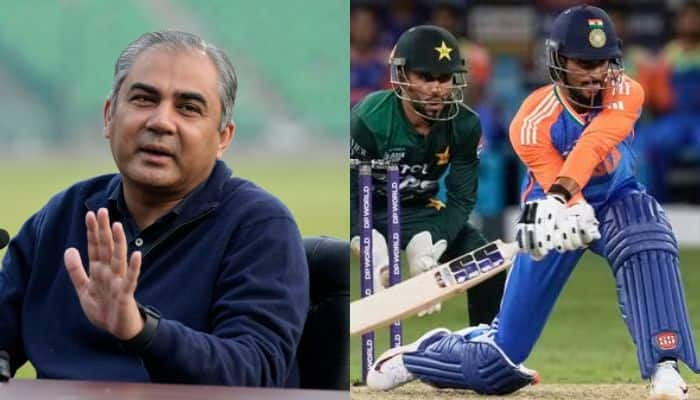The Asia Cup 2025 clash between India and Pakistan has ignited a storm far beyond the cricket field. The post-match handshake, a long-standing symbol of sportsmanship, became a flashpoint when Indian cricketers refused to greet their Pakistani counterparts after the thrilling contest in Dubai on Sunday. PCB chief and Asian Cricket Council (ACC) President Mohsin Naqvi has now intensified the debate, accusing Team India of “dragging politics into the game.”
The Handshake Controversy: India Stands Firm
Indian captain Suryakumar Yadav, after steering India to victory, chose to head straight to the dressing room, bypassing the customary handshake with Pakistan players. The Men in Blue continued the trend, as players in the dugout shook hands among themselves but avoided meeting the opposition team on the field.
Suryakumar later explained in a press conference that the decision was deliberate, reflecting solidarity with the victims of the Pahalgam terror attack. “Our government and BCCI were aligned today,” he said. “We came here to just play the game. We have given a proper reply.”
This move, while politically symbolic, drew sharp criticism from Pakistan’s side, with Naqvi calling it “a needless politicization of cricket.”
Match Referee Andy Pycroft: Following ACC Instructions
Adding another layer to the controversy, Pakistan demanded the removal of match referee Andy Pycroft, who reportedly instructed Pakistan captain Salman Ali Agha to avoid initiating a handshake with Suryakumar during the toss. Sources suggest Pycroft acted on directives from the ACC, chaired by none other than Mohsin Naqvi himself.
A report in the Times of India highlighted the complexities: “Someone from the ACC had a chat with Pycroft before the game, and what happened at the toss was a result of that chat. It’s about time the PCB chief finds out what that chat was, who did it, and why—instead of pointing fingers at the ICC to further fuel the fire.”
The row escalated as Pakistan even threatened to boycott its upcoming match against the UAE, demanding Pycroft’s immediate removal from ICC oversight.
Sporting Protocol or Political Statement?
While the incident has dominated headlines and social media feeds, experts remind fans that shaking hands is more tradition than a legal requirement in cricket. According to MCC laws, no rule mandates post-match handshakes; it is considered a gesture of goodwill rather than a binding protocol.
This raises a critical question: Was India’s decision purely a political statement, or a justified expression of solidarity? For cricket purists, it’s a clash of ethics versus empathy. Analysts argue that while the gesture is symbolic, the game’s spirit remains intact as long as fair play is observed on the field.
Expert Analysis: What This Means for India-Pakistan Cricket
The no-handshake incident may influence diplomatic and cricketing relations between the two nations. For players, it adds pressure to separate political tensions from sporting commitments. Naqvi’s comments, coupled with PCB’s formal protest, suggest that the episode will linger in public discourse, potentially shaping how future encounters between India and Pakistan are managed.
From a sporting perspective, the focus remains on player performance. Suryakumar Yadav’s calm handling of the situation, combined with India’s victory, reinforces the Men in Blue’s ability to compartmentalize politics while delivering on-field results.

